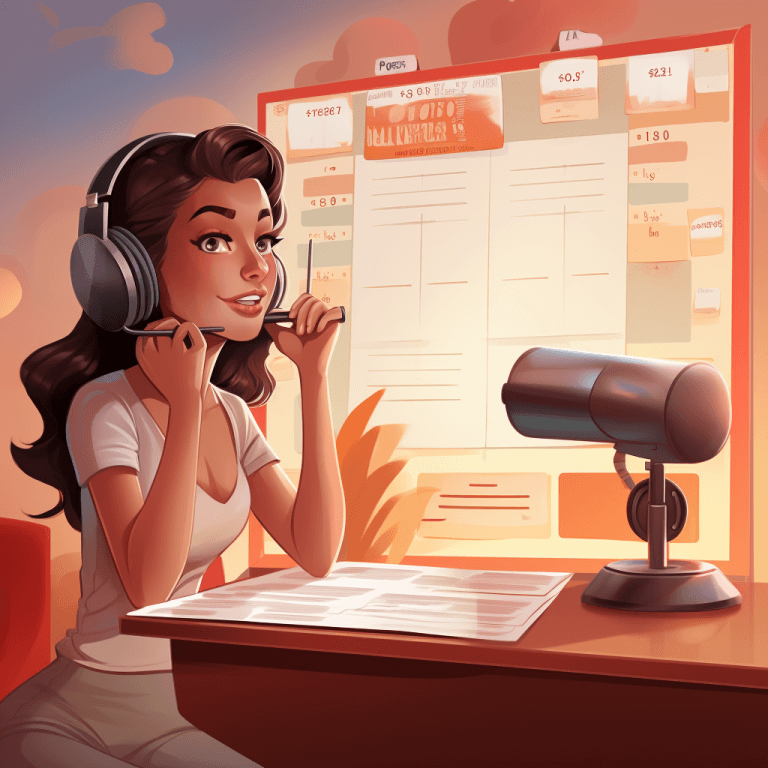Why a Podcast Could Be the Best Publicity Channel for Your New Book
I’ve been podcasting for more than seven years, and in addition to hosting How I Built It, I produce several other podcasts and have created an online course teaching people how to start their own podcasts. I guess you could say I’m a fan.
But did you know I’m also a published author with six titles to my name?
Keep reading to learn why podcasts are an excellent marketing and content outlet for authors, and why I wish I had created a podcast for my latest book:
- Because of the intimate nature of audio content, a podcast will help create superfans for your book by building trust and providing valuable context to your listeners.
- In addition to repurposing content from your book, sharing behind-the-scenes and bonus material will draw listeners into your process and even improve your final product.
- A great podcast can certainly drive more book sales, but it can also allow you to connect with your readers more directly and continue the conversation beyond the page.
It’s easier (and cheaper) than ever to start your own podcast, and as I discuss in Episode 154 of my podcast, podcasts are the next plane of content — a format that people can consume even while they do other things like driving, commuting, or (my personal favorite) mowing the lawn.
Because listeners are welcoming your actual voice into their homes, cars, and ears, podcasting is a very intimate form of communication and one that helps your audience get to know you and your work in a whole new way.
Based on Episode 217 of How I Built It, here’s my take on why authors should start a podcast, what content your listeners will love, and why podcasting creates a deeper connection with readers than the book alone ever could.
Put a voice to your words — establish trust and authority
Whether you’re looking to podcasting as a way to sell more books or a way to get your readers to buy other products you sell, the initial objective is the same. You must help your audience know you, like you, and trust you before they will ever give you their money, and the personal nature of podcasting is well-suited to the task.
Particularly if you are a nonfiction author writing educational material, potential readers need to feel confident that you know what you’re talking about and decide that your book will be a good investment of their time and money.
I write books about web development and design, and my latest published work is a visual quick start guide to HTML and CSS. A podcast about this book could help establish my authority on the topic, especially among teachers who might want to choose the book for a course they teach, for example.
Establishing authority can also help in combating misinformation or even one-star reviews — like the ones I received after my HTML and CSS book was published in 2020. It seems these dissatisfied readers missed some of the valuable digital content that supplemented the printed book. (Hear more about this in Episode 209.)
If I had a podcast to accompany the book launch, not only could I better promote the informative video content, but I could also create a personal connection with new readers that would supersede any doubts generated by those anonymous reviewers.
Is starting a podcast based on a book like giving away the shop?
Not surprisingly, one of the big concerns about starting a podcast — especially for authors or content creators who make money from their work — is whether the podcast will lead to decreased sales because readers can now get the information for free.
The short answer is: no!
A podcast provides the opportunity to repurpose some (not all) of your content, and it also allows you as the author to provide additional context for your book.

Learn how podcast pros produce their shows…
…and how you can improve yours.
One breakdown, delivered to your inbox weekly.
Learn the tools and processes used by top podcasters and reclaim hours of your life every week.
For example, Chapter 19 of my latest book is about CSS preprocessors. Let’s say a news story broke about a new preprocessor hitting the market. Because I’ve covered this in my book, I know it’s a topic that will be relevant for my readers, so I could create an episode — speaking as an expert on the subject, of course — that covers the news and also draws from my book.
Naturally, understanding CSS preprocessors requires knowledge of CSS itself, so the conversation would also serve as an invitation for listeners to pick up the book for more information.
A podcast can not only help you sell more copies of your book, but it can help you create superfans for your book.
🎤 Top Tip: Creating a podcast for your book is a great way to land paid speaking gigs! Your podcast even acts like an audition tape because event planners can hear what you talk about and what you sound like.
Defining a topic for your book-inspired podcast
If you’ve been spending months or years writing a book, you might not be too excited to create a bunch of new content for your podcast. The good news is that some of the best content for your podcast is based on work you’re already doing.
Here are four great ideas for podcast content:
- Include materials that didn’t make it into the book or had to be cut in the editing process. For example, in my latest book, I wrote some great content about mockups and how they are helpful in the design process. Since the book doesn’t focus on web design it didn’t make sense to include, but I know it would still be useful to my readers.
- Discuss your book writing journey. Talk about the research you did, the apps and tools that you used, or how the editing process made the book better. Tell the story of the book’s cover design, or why you chose to self-publish or work with a traditional publisher.
- If you start your podcast while you’re still writing the book, share the chapter you’re working on and ask for feedback from your listeners. Is there anything you’ve left out? Is anything unclear? How can you make the chapter better?
- Record an episode about errata or share updates or news that has come out since the book was published. Especially if you write about a subject that is always changing — like web development — then sharing periodic updates will make your book content much more dynamic.
Beyond being interesting to your audience, all of these topics will also help them to feel more attached to your book and more deeply invested in its success.
📆 Top Tip: Friend of the show Brittney Lynn did a podcast episode all about why authors should ideally begin publicity efforts six months before a book’s publication date — and continue them for at least three months after.
Engage beyond the page — CTAs and creating connections
It’s important to acknowledge that the book/podcast relationship is a two-way street, especially when it comes to your audience.
The most obvious call-to-action for your podcast would be something like — If you like what I’m talking about here and want to learn more, buy my book. While you hope some listeners will do just that, you can also add a small incentive that will transform your podcast listener into a book reader and then into a member of your community.
Give shoutouts on the air to readers who email you to say they heard about your book on the podcast. Or ask for customers to send in a photo of their receipt in exchange for bonus audio material.
Taking another approach, you could change your CTA to Join my mailing list! — then use your onboarding email to ask whether a new subscriber has purchased the book, and segment your list based on the response so that you’re serving people who found the podcast via the book, as well as the other way around.
In all of these examples, you’re getting something you would never otherwise get as the author of a printed book — your reader’s email address. With direct access to an engaged audience, you can continue the conversation in numerous ways that will enrich the value of your book for both them and you.







